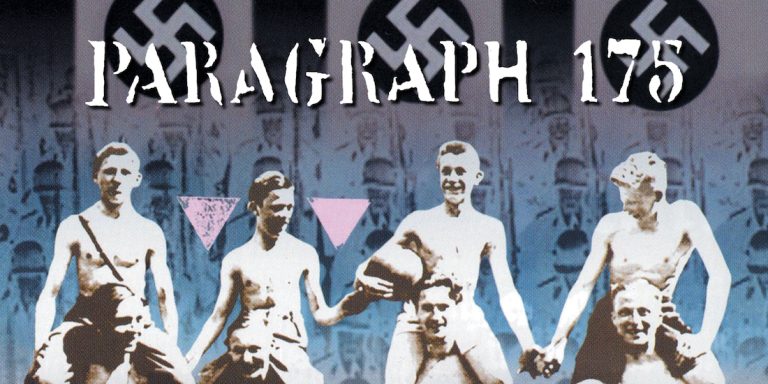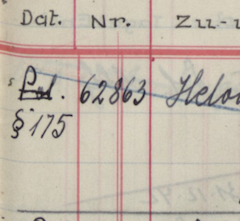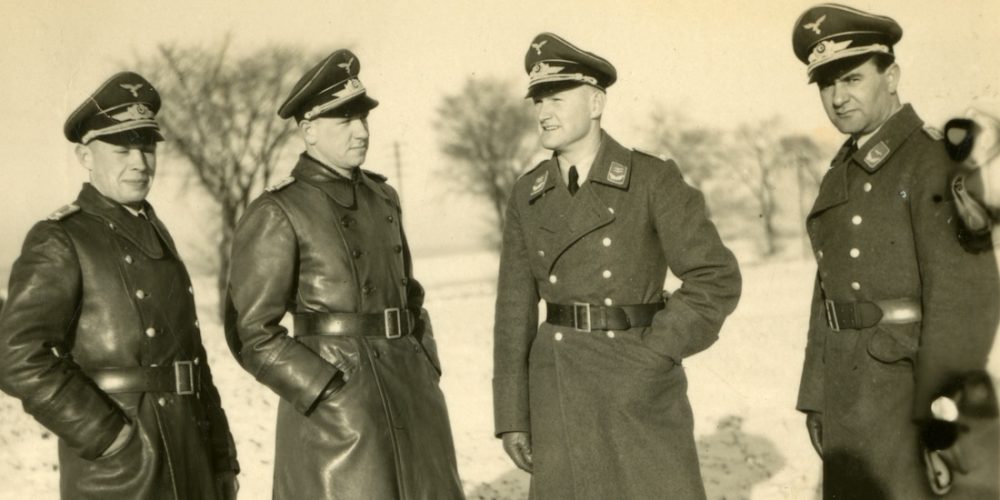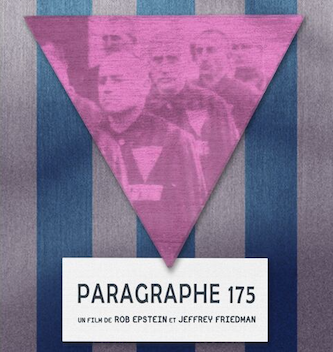
As LGBTQ+ rights face renewed challenges, survivors’ testimonies from Nazi persecution in documentary film “Paragraph 175” offer crucial lessons about vigilance and remembrance

New York, N.Y. – The flickering images on the documentary screen tell a story that many would prefer to forget. In Rob Epstein and Jeffrey Friedman’s film Paragraph 175, elderly voices speak with quiet dignity about unspeakable horrors.

Their words carry the weight of history, the burden of survival, and an urgent message for contemporary America: the past is never truly past.
The Crimson Letter of German Law
Paragraph 175 of the German Penal Code, enacted in 1871, criminalized sexual acts between men.
What began as a legal statute became a weapon of systematic persecution under the Nazi regime.
The documentary’s power lies not in its historical overview but in its intimate portraits of survivors who lived through this dark chapter.
The film’s subjects, mostly in their eighties and nineties when interviewed, speak with remarkable clarity about experiences that would have broken many.
Their testimonies reveal how ordinary citizens became complicit in extraordinary evil, how neighbors turned against neighbors, and how the machinery of hatred operated with bureaucratic efficiency.
Klaus Müller, one of the few survivors willing to be filmed, describes the progressive nature of persecution:
“First, they came for the communists,” he recalls, echoing Martin Niemöller’s famous warning.
“Then the Jews. Then us. Each group thought they would be safe if they stayed quiet.”
The Psychology of Persecution
The documentary reveals how the Nazi Party weaponized existing prejudices against homosexual men, transforming them into state policy.

The pink triangle, forced upon gay prisoners in concentration camps, became both a mark of shame and, decades later, a symbol of pride and resistance.
Dr. Magnus Hirschfeld’s Institute for Sexual Science, destroyed by Nazi book burnings in May 1933, represented one of the first casualties in the regime’s war against sexual minorities.
The institute’s research on gender identity and sexuality threatened the Nazi–and MAGA–vision of rigid gender roles and procreative duty to the state.
The film’s archival footage shows the methodical destruction of decades of scientific progress. Books burn while crowds cheer, presaging the broader conflagration that would consume Europe.
The message is clear: knowledge itself becomes dangerous when it challenges authoritarian narratives.
Echoes in Contemporary America
Watching Paragraph 175 in the context of modern American politics requires uncomfortable introspection.

The documentary’s release in 2000 seemed to mark a historical curiosity, a reminder of humanity’s capacity for evil safely relegated to the past.
Today, with LGBTQ+ rights under renewed assault, the film feels prophetic.
The parallels are not perfect, but they are present.
The gradual erosion of rights, the targeting of transgender individuals, the rhetoric of “protecting children” used to justify discrimination—these strategies mirror the early stages of persecution documented in the film.
George Santayana’s warning about repeating history resonates strongly for those who understand how
quickly social progress can reverse. The survivors in Paragraph 175 lived through Germany’s transformation
from the relatively tolerant Weimar Republic to the murderous Third Reich in less than a decade.

The Silence of Complicity

Perhaps the most chilling aspect of the documentary is its exploration of complicity.
The survivors describe how ordinary citizens participated in or ignored persecution.
Shopkeepers refused service, landlords evicted tenants, and friends crossed streets to avoid association with marked individuals.
This complicity wasn’t born of sadistic pleasure but of self-preservation and social conformity.
People convinced themselves that cooperation would ensure their own safety, that the persecution would be limited, that “it couldn’t be that bad.”
The film challenges viewers to examine their own potential for complicity.
In what circumstances might we prioritize our comfort over others’ safety? When do we speak up, and when do we look away?
Lessons for Democracy’s Defenders

The strength of Paragraph 175 lies in its refusal to offer easy answers or false comfort. The survivors don’t present themselves as heroes but as humans who endured.
Their stories suggest that survival often required compromise, that moral purity was a luxury few could afford.
Yet their willingness to speak, decades later, represents a form of resistance. By sharing their experiences, they fulfill the survivor’s obligation to bear witness.
They transform personal trauma into collective memory, private pain into public warning.
For contemporary audiences, particularly those concerned about democratic backsliding, the film offers both caution and guidance.
It demonstrates how quickly societies can abandon their values, but also how individual acts of courage can preserve dignity even in the darkest times.
The documentary’s final scenes show elderly survivors at Holocaust Memorial Day ceremonies, wearing pink triangles with pride rather than shame. Their presence represents not just survival but triumph—the ultimate defeat of those who sought to erase them from history.
As America grapples with its own challenges to pluralism and tolerance, Paragraph 175 serves as both warning and inspiration. The survivors’ voices remind us that vigilance is the price of freedom, that remembrance is the foundation of resistance, and that speaking truth to power requires courage in every generation.
Their message transcends time and place: democracy dies not in dramatic coups but in the accumulation of small compromises, minor accommodations, and quiet complicity. The price of preventing repetition is eternal vigilance—and the courage to act when history calls.
FILM | History’s Warning Signs Echo Across MAGA America’s Landscape (July 25, 2025)
Audio Summary
This story examines how the documentary “Paragraph 175” provides crucial historical context for understanding the persecution of LGBTQ+ individuals under Nazi Germany, drawing parallels to contemporary concerns about civil rights erosion in modern America. The piece emphasizes the importance of remembering historical atrocities to prevent their repetition, particularly relevant given current political tensions surrounding LGBTQ+ rights and civil liberties in the United States.
#Paragraph175 #LGBTQHistory #NeverForget #HolocaustEducation #CivilRights
#Democracy #PinkTriangle #HistoryMatters #Resistance #Documentary
TAGS: paragraph 175, nazi persecution, documentary film, holocaust remembrance,
civil rights, george santayana, pink triangle, concentration camps, weimar republic, third reich,
lgbtq history, democratic backsliding, historical memory, survivor testimony, social justice
